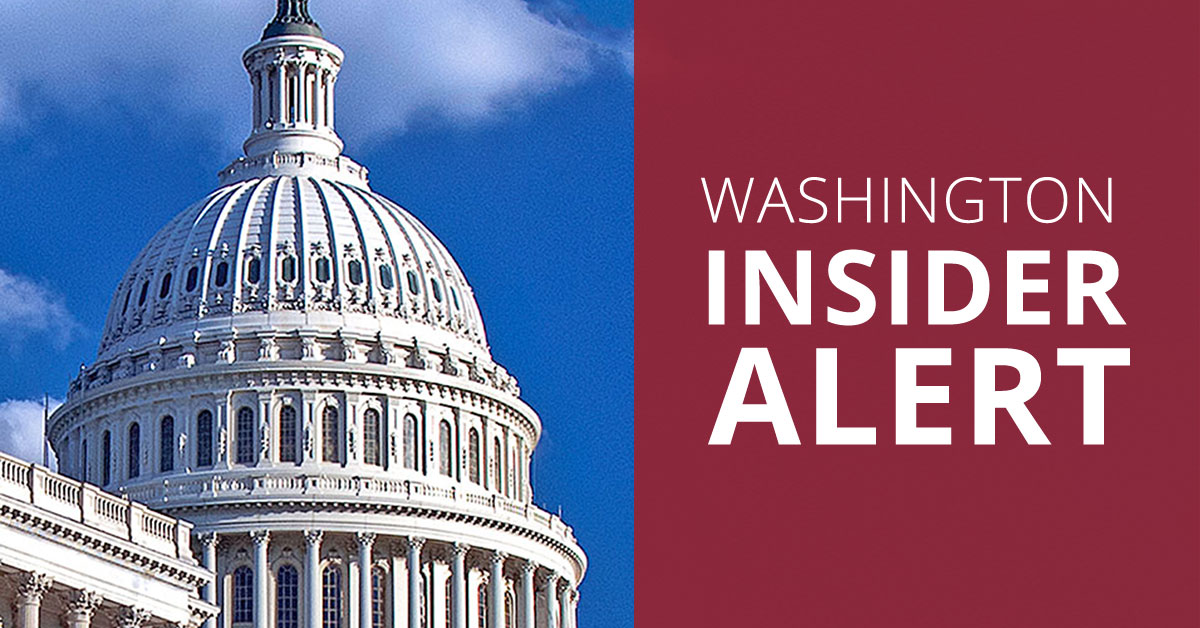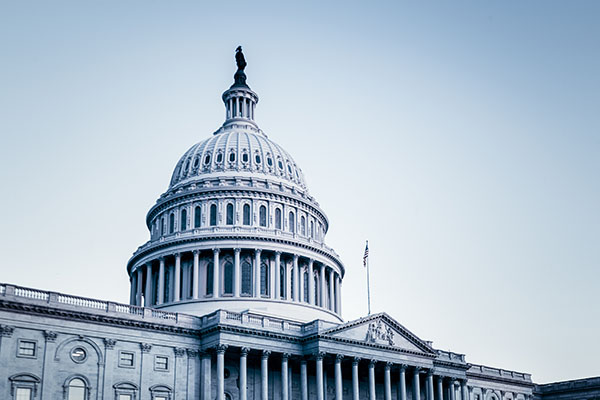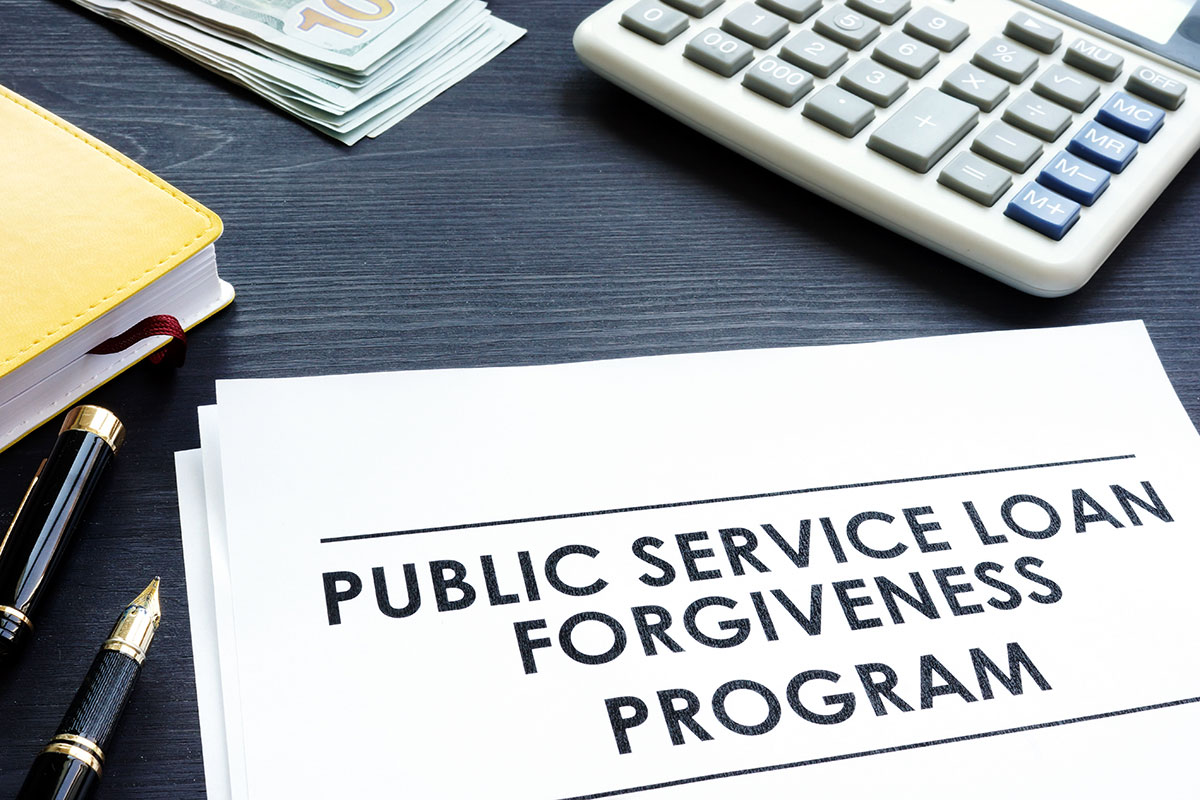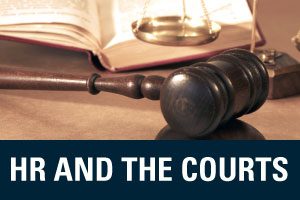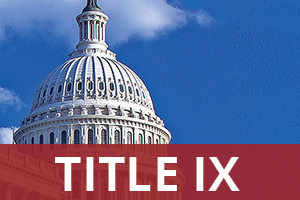by CUPA-HR | November 14, 2024
The results of the 2024 election are in: Donald Trump will serve as the 47th president of the United States, while both the Senate and House of Representatives will be controlled by Republicans. With the Republican trifecta in the White House and Congress, Republicans can focus on passing their policy priorities through legislation in Congress and regulatory action at the federal agencies. CUPA-HR’s government relations team provides the following analysis to offer insight into possible leadership, policies and regulations we expect starting in January 2025.
Federal Agencies and Congressional Committees
Department of Labor
The Department of Labor (DOL), overseen by the secretary of labor, directs policy and regulations for employers, workers, and retirees in the U.S. Throughout the election season, news organizations have speculated President-elect Trump’s potential picks for the secretary position, though who will be nominated will be unknown until Trump announces it. According to Politico, two possible candidates are Patrick Pizzella and Bryan Slater. Under the first Trump administration, Pizzella served as deputy secretary of labor and acting secretary of labor between former secretaries Alex Acosta and Eugene Scalia. Slater, who currently serves as Virginia’s secretary of labor, had also previously served as assistant secretary at DOL under the previous Trump administration.
In addition to the secretary of labor, Trump will pick people to head the subagencies at DOL, including the Employee Benefits Security Administration, Occupational Safety and Health Administration, and Wage and Hour Division, among others. These agencies draft and implement regulations governing retirement and health benefits plans, workplace safety and health, and minimum wage and overtime pay requirements. Leaders of the DOL subagencies are typically selected later in the Cabinet-appointment process.
National Labor Relations Board
The party control of the National Labor Relations Board (NLRB) depends on actions taken by the Senate during the lame-duck session between the election and President-elect Trump’s inauguration. Current chair of the NLRB Lauren McFerran’s term is set to expire in December 2024, but she has been renominated to serve on the board for another five years by President Biden. Senate Democrats, who are likely to push for her confirmation now that the Senate and White House will be Republican-controlled in 2025, will need to vote to confirm her position, only needing a simple majority. If confirmed, NLRB would be under Democratic control until at least August 2026, more than a year and a half into the Trump administration, leaving President Trump unable to obtain a Republican majority on the board — and thereby control the policy at the NLRB — for nearly half of his second term.
Despite possibly not having control of the NLRB, President Trump may choose to fire the NLRB General Counsel Jennifer Abruzzo (Democrat), whose term is not set to expire until July 2025. In 2021, President Biden terminated then-General Counsel Peter Robb (Republican) within hours of his inauguration, despite Robb’s term not ending until November of that same year. This was the first time any sitting president had fired a sitting general counsel at an independent agency for policy differences. Federal courts upheld Robb’s termination, so President Trump is highly likely to terminate Abruzzo immediately upon taking office. As a reminder, Abruzzo issued several memos stating her position regarding employment status for student-athletes, severance agreements, and disclosure obligations under the National Labor Relations Act and Family Educational Rights and Privacy Act, all of which would likely be rescinded by Trump’s NLRB general counsel appointee.
Equal Employment Opportunity Commission
Unless a commissioner leaves their post before their term expires, the Equal Employment Opportunity Commission (EEOC) will maintain a Democrat majority (currently 3-1, with one Republican seat vacant) until July 2026. Despite this, President-elect Trump is likely to appoint Commissioner Andrea Lucas to serve as chair of the EEOC. Lucas and the EEOC would be limited in their ability to adopt new policies or reverse actions taken by the Democrat-controlled commission prior to July 2026. At that time, we expect the Republican-controlled EEOC to issue revised guidance that narrows the scope of the agency’s interpretation of Title VII protections in light of Bostock v. Clayton County and the legality of diversity, equity, and inclusion (DEI) initiatives in employment practices, possibly extending legal principles established under the Students for Fair Admission v. Harvard case.
Similar to the NLRB, we expect that President-elect Trump will replace the current EEOC General Counsel Karla Gilbride (Democrat). In her role, Gilbride has litigated on behalf of the EEOC in federal court, but the position typically does not provide policy recommendations to the full commission like the NLRB general counsel does.
Department of Education
The Department of Education (ED) oversees and implements policy and regulations governing federal assistance to education. With respect to higher education, ED governs issues like federal financial aid, Title IX compliance, and other laws aimed at promoting student success. Under the incoming Trump administration, Politico has speculated that there are a few possible contenders who could ultimately lead the agency.
One possible candidate for ED’s secretary is Betsy DeVos, who served as secretary of education during Trump’s first term. During DeVos’ first term as ED secretary, she led the agency to implement the 2020 Title IX regulations that are still currently in place in 26 states and hundreds of schools around the country, pending legal challenges to the Biden administration’s rule. However, DeVos resigned from her position as secretary of education after the January 6, 2021, riots at the U.S. Capitol, which may lead the incoming Trump administration to search for new candidates. Despite her resignation, DeVos has indicated that she is open to discussions about potentially serving in the role again.
As we also discuss below, Rep. Virginia Foxx (R-NC) will be stepping down from her role as chair of the House Education and the Workforce Committee, where she most recently led an investigation into antisemitism on campus in higher education. This, along with her previous experience serving as an English instructor and president of a community college, may set her up for a bid for the secretary position.
Some additional names that have been discussed by Politico are Virginia Governor Glenn Youngkin, Oklahoma State Superintendent of Public Instruction Ryan Walters, and Moms for Liberty founder Tiffany Justice.
House Education and the Workforce Committee
Republicans held control of the House in the 2024 election, but there will still be some shakeup in leadership for the Education and Workforce Committee. Chair of the committee Virginia Foxx will be stepping down from her role, leaving open the Republican leader position of the Committee. The two front-runners to chair the committee are Reps. Tim Walberg (R-MI) and Burgess Owens (R-UT), both currently serving on the committee. Notably, Walberg has served on the committee for 16 years, and Owens currently serves as the chair of the Higher Education and Workforce Development Subcommittee. For Democrats, current ranking member of the committee Bobby Scott (D-VA) is expected to maintain his position as leader of the Committee Democrats.
Walberg and Owens have both publicized their policy priorities. Walberg has stated that, under his leadership, the committee would focus on legislation to make college more affordable, boost apprenticeships, implement a short-term Pell grant for workforce training programs, and reauthorize the Workforce Innovation and Opportunity Act. Owens hopes to steer the committee with a more education-centric focus, stating that top priorities for him are school choice and oversight into how ED uses its funding.
Senate Health, Education, Labor, and Pensions Committee
Republicans in the Senate gained control during the 2024 election, flipping the previously Democrat-controlled chamber. As a result, Senator Bill Cassidy (R-LA) will likely rise to the role of chair on the Health, Education, Labor, and Pensions (HELP) Committee. Senator Bernie Sanders (I-VT) will shift into the ranking member position after serving as the chair of the full committee in the 118th Congress. Before his political career, Cassidy was a physician, meaning he could pivot the committee to focus more on health policy. Despite this, Cassidy has also advocated for the HELP committee to advance a Workforce Innovation and Opportunity Act reauthorization bill, and he has advocated for the committee to focus on other education issues as well.
Policy Implications of the Election
FLSA Overtime
As you already know, the Biden administration is in the process of implementing their FLSA overtime regulations. The final rule took a two-phased approach to increasing the minimum salary threshold. The first increase raised the salary threshold to $43,888 per year and took effect on July 1, 2024. The second increase would raise the salary threshold to $58,656 per year and is set to take effect on January 1, 2025. The regulations are currently being challenged in a federal district court in Texas, where a preliminary injunction to block the rule from taking effect has been placed only for public employers in the state of Texas. It remains to be seen how the federal judge will rule on the lawsuits, though a hearing for the cases was held on November 8 and a ruling is imminent.
As the Trump administration will not take office until after the January 1 threshold, the regulation will take effect, pending further appeals, if the final rule is upheld in federal court. If the rule is struck down, we expect the Trump administration will let the court’s decision remain and make no further effort to appeal the decision. If the Trump administration decides to increase the minimum salary threshold during this upcoming term, they will likely use the methodology from the 2019 rule to increase the threshold.
Title IX
Similar to the overtime final rule, the Biden administration issued Title IX regulations in 2024 that are also facing legal challenges. The Biden administration’s Title IX rule took effect on August 1, 2024, but several lawsuits challenging the rule have resulted in preliminary injunctions blocking ED from enforcing it in 26 states and hundreds of other schools in states that did not challenge the final rule.
The Biden administration’s regulations replaced the previous Trump administration’s 2020 Title IX regulations. If the regulations are upheld in federal court, we expect that the incoming secretary of education will repeal the Biden administration’s regulations in favor of keeping the 2020 regulations in effect across the country.
Immigration
There are several policies and regulations that CUPA-HR has been tracking on the immigration front that face uncertain futures under the incoming Trump administration. During the first term, the Trump administration placed a proposed rule on the regulatory agenda aiming to restrict the Optional Practical Training program, which allows international students who graduate from U.S. institutions to work in their degree-related field for at least 12 months after graduating. The Trump administration also finalized a couple of final rules that would have increased wage obligations for H-1B visas and narrowed eligibility for H-1B visas to positions that qualified as “specialty occupations.” These rules were struck down in court, so while Trump is unlikely to implement the same rules, we could see similar attempts to increase H-1B wage obligations and narrow the H-1B program.
Additionally, the incoming Trump administration will likely look to reverse policies implemented by the Department of Homeland Security under the Biden administration, including dropping any appeal of the recent court ruling against the “Keeping Families Together” program for undocumented spouses and children of U.S. citizens, as well as rescinding the guidance to streamline the H-1B visa waiver process for Deferred Action for Childhood Arrivals (DACA) recipients. Similarly, if the Biden administration does not finalize the H-1B modernization rule before the end of his term, a new Trump administration may seek to implement a more restrictive version, reshaping the rule to reflect its own priorities rather than those outlined in the Biden administration’s October 2023 proposal.
Legislative Priorities
With Republicans controlling both the House and the Senate, legislative priorities should be mostly aligned between the two chambers and the White House. However, their ability to pass legislation will still depend on bipartisan support, as Republicans hold a narrow majority in the House and do not have a large enough majority in the Senate to bypass the 60-vote filibuster. Despite these challenges, we expect Republicans to focus on issues like paid leave, workforce development, and affordable college and workforce training.
Though paid leave is a priority for both parties, Republicans and Democrats have previously not agreed on the best approach to establish it through federal legislation. In his first term, Trump and other Republicans backed paid leave legislation that allowed parents to collect a portion of their future child tax credits early to use for leave and receive smaller credits in the following years. This proposal ran counter to the Democrat-supported Family and Medical Insurance Leave (FAMILY) Act, which would establish a payroll tax to fund a paid family and medical leave program that can be used to pay workers who are new parents or who are caring for their own health issues or those of their family. Republicans and Democrats will need to find a compromise if they are to pass any paid leave legislation in the upcoming Congress, as they will need 60 votes in the Senate to bypass a filibuster.
Despite their differences on paid leave, Republicans and Democrats have made bipartisan efforts to pass legislation to improve workforce development and create a short-term Pell grant. During this Congress, both the House and Senate have worked to pass legislation to reauthorize the Workforce Innovation and Opportunity Act, which serves as the nation’s primary federal workforce development legislation designed to help Americans receive training and support to obtain skills necessary for high-quality jobs and careers. Additionally, there has been bipartisan support to pass legislation that would expand the Pell grant program to cover short-term workforce development and training programs that are outside the traditional higher education path. Again, Republicans and Democrats will need to find consensus on these issues in order to bypass the Senate’s 60-vote filibuster, but bipartisan issues like workforce development and short-term Pell grants appear to have a possible path to becoming law.
CUPA-HR is hosting a 2024 election analysis webinar on November 21 at 12 PM ET. Registration is free for CUPA-HR members. Additional updates will be provided through future blogs and Washington Insider alerts.

